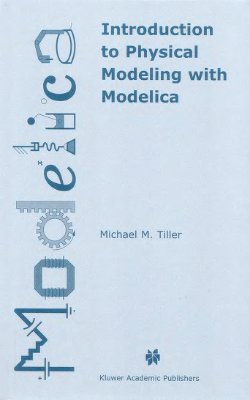Springer, 2001, 368 pages, DJVU + CD
The first book on Modelica, a modeling language that can be used to simulate both continuous and discrete behavior, Introduction to Physical Modeling with Modelica provides the necessary background to develop Modelica models of almost any physical system. The author starts with basic differential equations from several engineering domains and describes how these equations can be used to create reusable component models. Next, he describes techniques for modeling complex non-linear behavior, exploiting the powerful array handling features and mixing continuous and discrete behavior. The second part of the book focuses on effective use of all the language features provided by the Modelica modeling language. This includes, among other things, discussions on maximizing the reusability of component models being developed, managing the model development process, and making models as computationally efficient as possible.
Introduction to Physical Modeling with Modelica includes online access to supplementary material containing the Modelica source code for all examples as well as an evaluation copy of Dymola. Using Dymola, readers can immediately begin to explore the dynamics of the models included with the book or to develop their own models.
Nearly 100 examples of mechanical, electrical, biological, chemical, thermal and hydraulic models are included.
Introduction to Physical Modeling with Modelica will be of interest to all professional engineers and university researchers developing physical models. Students studying control system development or modeling of physical systems will also find it useful.
The first book on Modelica, a modeling language that can be used to simulate both continuous and discrete behavior, Introduction to Physical Modeling with Modelica provides the necessary background to develop Modelica models of almost any physical system. The author starts with basic differential equations from several engineering domains and describes how these equations can be used to create reusable component models. Next, he describes techniques for modeling complex non-linear behavior, exploiting the powerful array handling features and mixing continuous and discrete behavior. The second part of the book focuses on effective use of all the language features provided by the Modelica modeling language. This includes, among other things, discussions on maximizing the reusability of component models being developed, managing the model development process, and making models as computationally efficient as possible.
Introduction to Physical Modeling with Modelica includes online access to supplementary material containing the Modelica source code for all examples as well as an evaluation copy of Dymola. Using Dymola, readers can immediately begin to explore the dynamics of the models included with the book or to develop their own models.
Nearly 100 examples of mechanical, electrical, biological, chemical, thermal and hydraulic models are included.
Introduction to Physical Modeling with Modelica will be of interest to all professional engineers and university researchers developing physical models. Students studying control system development or modeling of physical systems will also find it useful.

